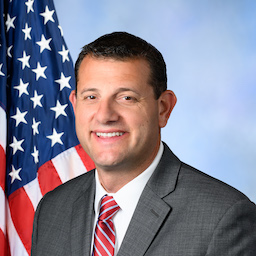- Home
- About
-
Services
- Art Competition
- Community Project Funding Map
- Congressional App Contest
- Congressional Certificate
- Event Request
- Flag Request
- Grants
- Grant Letters of Support
- Help with a Federal Agency
- Inauguration
- Internships
- Kids Page
- Meeting Request
- Service Academy Nominations
- Tour Requests
- Vietnam Veteran Commemoration
- Government Shutdown FAQ
- Issues
- Media
- Contact

Press Releases
Congressman Valadao Joins Bipartisan Bill to Bolster Healthcare Workforce
Washington,
January 22, 2024
|
Faith Mabry
Tags:
Health Care
Congressman David G. Valadao (CA-22) joined Reps. Brad Schneider (IL-10), Ann Kuster (NH-02), and Mike Carey (OH-15), to introduce the Substance Use Disorder Workforce Act. This legislation aims to increase the number of healthcare professionals dedicated to battling the nation’s drug overdose epidemic each day.
WASHINGTON – Today, Congressman David G. Valadao (CA-22) joined Reps. Brad Schneider (IL-10), Ann Kuster (NH-02), and Mike Carey (OH-15), to introduce the Substance Use Disorder Workforce Act. This legislation aims to increase the number of healthcare professionals dedicated to battling the nation’s drug overdose epidemic each day. “The opioid epidemic continues to have a devastating impact on communities across the country, especially here in the Central Valley,” said Congressman Valadao. “Our healthcare professionals are on the frontlines of battling this epidemic, but shortages in our healthcare workforce are making this fight even more challenging. The Substance Use Disorder Workforce Act will help to increase the number of healthcare professionals trained in addiction and pain medicine so we can get folks the treatment they need to recover.” “The devastating impact of the overdose crisis on communities across the country underscores the urgent need for doctors to treat addiction like the disease it is,” said Congressman Schneider. “As our nation already faces a thinly stretched medical workforce, it can be even more difficult for those struggling with a substance use disorder to receive quality care. Preventing overdose deaths is a top priority of mine, and I am confident this bipartisan legislation will educate more physicians with the latest training in addiction medicine and psychiatry to care for those in need.” Background: Workforce experts predict that the U.S. will face a significant physician shortage for both primary care and specialty physicians over the next 10 years if training positions are not expanded, with the Association of American Medical Colleges predicting a shortage of 139,000 physicians by 2033. The Substance Use Disorder Workforce Act increases the number of residency positions eligible for graduate medical education payments under Medicare for hospitals that have addiction or pain medicine programs, with an aggregate increase of 1,000 positions over a five-year period. Read the full text of the bill here. |

